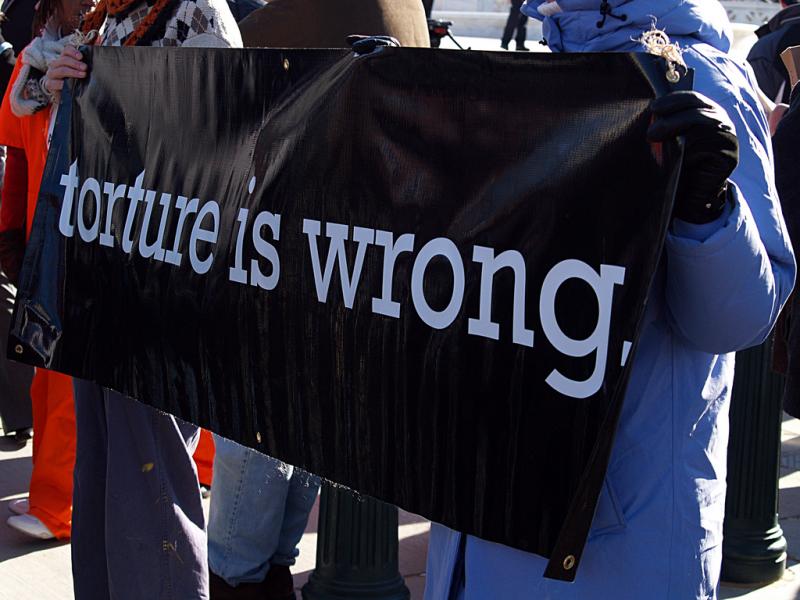Supreme Court Refocuses Human Rights Case

There is a statute, the Alien Tort Statute, which was created in 1789 and was used largely by human rights groups in the 1970s to bring cases against those responsible for committing human rights abuses in other countries, and under which this current case was brought to the Supreme Court. A “tort” is a civil wrong “recognized by law as grounds for a lawsuit.”
The court had ruled in 2004 that offenses of international law such as torture and genocide could be the basis for a lawsuit. However, the question of the nature of defendants that could be sued was left unanswered. So, the current case, Kiobel v. Royal Dutch Petroleum, initially asked “whether corporations can ever be held liable” under the Alien Tort Statute, which “allows foreign nationals to bring civil suits in federal courts ‘for a tort only, committed in violation of the law of nations or a treaty of the United States.’”
Seems that the answer would be logical, right? A civil wrong is committed in another country, a human rights violation that is also in violation of international law; the plaintiffs bring a lawsuit against the accused party; and the accused party pays for the crime. Simple? Nope.
The Huffington Post reports:
“At oral argument last week, the Court’s conservatives appeared ready to hold corporations immune from suit under the Alien Tort Statute despite the law’s silence over the identity of potential defendants.
“Monday’s order, however, pushes aside the question of corporate liability to address a less politically explosive, but much more consequential question: whether any entity – individual, state, corporation – can be brought to justice in U.S. courts for abuses committed abroad.”
So, the case started out with the question of granting corporations free reign in the territories in which they hold power, free from the pesky restriction of answering to the crimes they commit there, and ends up questioning whether anyone who so much as visits another country and commits a human rights abuse there will be answerable to justice in the United States should a foreign party bring a lawsuit against the accused.
Why is that even a question?
This world is now a global one, characterized by corporations leaving their parent countries (usually, the United States) to earn more profit by seeking out cheaper means of production, thereby contributing directly to human rights violations for the sake of profit, or by supporting leaders of other countries that allow them to flourish in those countries while the leaders commit human rights violations themselves. The law has to be redefined to deal with this new era of globalization, because the law is currently not effective enough to protect the people of foreign countries from abuses against them committed by citizens or corporations of the United States.
If a crime is committed against a foreign people by entities associated with the United States and the crime is not known within the United States, how can the parties responsible be held accountable but by the ability of the wronged peoples to bring the case before the court that has the power to deliver justice?
Rather than let individuals or corporations exploit the weakness of a law unprepared to effectively handle international crimes, the law must change. This nation must be prepared to take a stand for human rights, and stand on the side of the people against whom crimes are committed.
The briefing on the case will finish in June, with the ultimate question being “whether and under what circumstances the Alien Tort Statute…allows courts to recognize a cause of action for violations of the law of nations occurring within the territory of a sovereign other than the United States.”
The answer must be one that ensures that individuals as well as corporations will be held accountable for their actions, even if those actions are taken in countries other than the United States. The answer must be one that stands against crimes of humanity, one that stands in favor of punishing those responsible.
Reach Senior Opinion Editor Cara Palmer here or follow her on Twitter.



